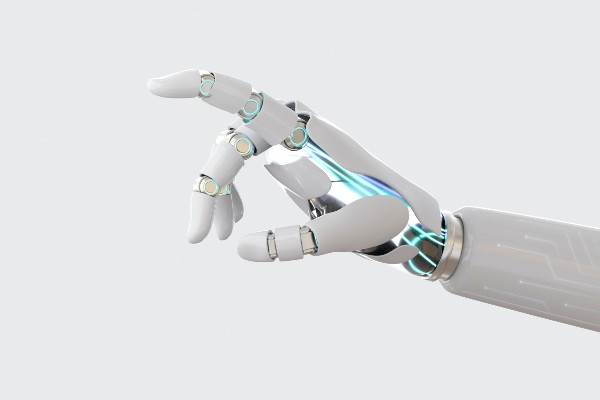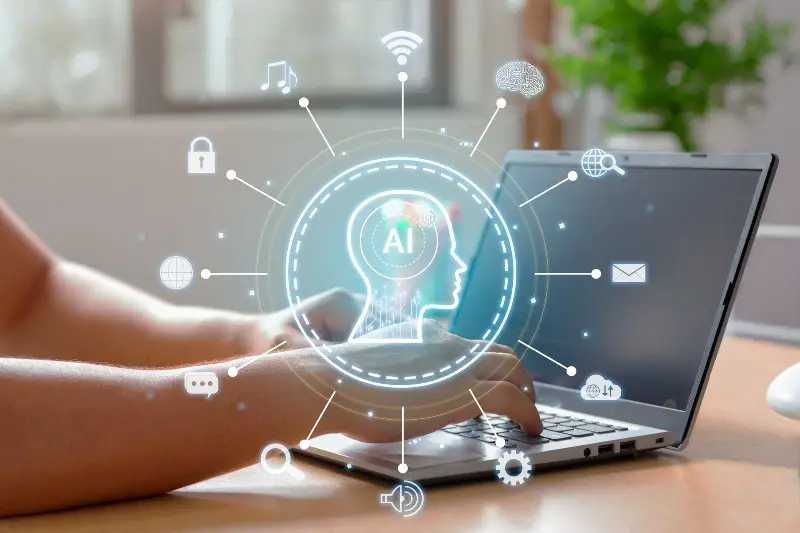Imagine a secret box that can make smart decisions and solve problems, but no one knows exactly how it works inside. This is what Black Box AI is like – a fascinating part of technology that’s incredibly powerful but often not fully understood. In this blog post, we’re going to explore Black Box AI in a way that’s easy for everyone to understand, even if you’re just learning about technology in the eighth grade. We’ll look at how it’s used in finance, affects the general public, operates in robotics, and relates to privacy and security.
Black Box AI might sound like something out of a science fiction movie, but it’s very much a part of our daily lives. It’s used in ways that impact how money is managed, how robots work, and even how our personal information is kept safe. Let’s dive into the world of Black Box AI and discover its role in these different areas.
Finance
In finance, Black Box AI is like a super-smart wizard that can predict what’s going to happen in the stock market. It looks at lots of financial data and makes decisions about where to invest money. This can be really helpful for people who work in finance because it can help them make better choices and possibly make more money.
But, it’s not all magic. Since no one fully understands how Black Box AI in finance makes its decisions, it’s a bit like taking advice from someone who won’t explain their reasoning. This can make it challenging for financial experts to fully trust these AI-driven decisions, especially when they involve large sums of money.
General Public
For the general public, Black Box AI is part of many things we use every day, often without even realizing it. When you see personalized ads on the internet or get movie recommendations from a streaming service, that’s often Black Box AI at work. It learns from what you do and makes suggestions based on that.
However, because people don’t always know how Black Box AI makes these decisions, it can be a bit unsettling. It raises questions like, “How does it know so much about what I like?” or “Is my personal information safe?” These are important questions to think about as we use more and more technology in our lives.
Robotics
In the world of robotics, Black Box AI is like the brain that helps robots make decisions and learn from their experiences. This AI is what allows robots to do things like navigating a room, recognizing objects, or even performing complex tasks in factories.
But the mystery of Black Box AI in robotics also brings up some concerns. When a robot does something unexpected, it’s not always clear why, because the AI’s decision-making process is hidden. This can be especially important to understand in situations where robots work with or near people.
Privacy and Security
Black Box AI plays a big role in keeping our personal information safe and secure. It can quickly spot when someone is trying to hack into a system or when there’s a virus trying to get into our computers. It’s like having a super-smart guard that’s always watching out for digital threats.
However, the same lack of transparency in Black Box AI can also raise concerns about privacy. If we don’t know how it’s using or protecting our personal data, it can be worrying. It’s important for people to feel confident that their information is being handled safely and ethically by these AI systems.
Myths vs. Facts about Black Box AI
Myth: Black Box AI Can Read Minds
Fact: Black Box AI can’t read minds or understand human thoughts. It makes decisions based on data and patterns, not thoughts or emotions.
Myth: Black Box AI is Always Correct
Fact: Even though Black Box AI can be incredibly efficient, it’s not always right. It can make mistakes, especially if it’s working with flawed or biased data.
Myth: Black Box AI Understands Human Emotions
Fact: Black Box AI doesn’t have emotions or consciousness. It processes information and finds patterns, but it doesn’t experience feelings like humans do.
FAQ Section
Q1: What is Black Box AI?
Black Box AI is a type of artificial intelligence where even the creators don’t fully understand how it makes decisions. It can solve complex problems and analyze large amounts of data, but exactly how it does this is often unclear.
Q2: How does Black Box AI impact finance?
In finance, Black Box AI analyzes financial data to predict market trends and make investment decisions. However, because its decision-making process isn’t transparent, it sometimes makes it difficult for financial experts to trust it completely.
Q3: What should the general public know about Black Box AI?
The general public interacts with Black Box AI more often than they might realize, especially in personalized online services. While it offers convenience, it’s important to be aware of how these systems might use personal data.
Q4: How is Black Box AI used in robotics?
In robotics, Black Box AI helps robots learn, adapt, and make decisions. It’s crucial for autonomous robots, but the lack of clarity in how these decisions are made can raise safety concerns.
Q5: What are the privacy concerns with Black Box AI?
Black Box AI raises privacy concerns because it’s not always clear how it processes and stores personal data. Ensuring that this AI respects user privacy and uses data ethically is a major consideration.
Google Snippets
Snippet on Black Box AI
“Black Box AI refers to advanced AI systems with decision-making processes that are not fully transparent, used in various industries for complex data analysis and problem-solving.”
Snippet on AI in Finance
“AI in finance is transforming investment strategies and financial analysis, offering rapid insights but often with an opaque decision-making process.”
Snippet on AI and Privacy
“AI’s role in privacy and security is significant, providing advanced protection against cyber threats while also raising questions about transparent and ethical data usage.”
Black Box AI Meaning: From Three Different Sources – Reworded
Source 1
Black Box AI involves AI systems operating without revealing their internal decision-making processes, often involving complex algorithms and data analysis.
Source 2
In Black Box AI, the mechanisms and logic behind the AI’s decisions are not visible or understandable, making its actions sometimes unpredictable.
Source 3
Black Box AI is characterized by AI models that provide solutions or predictions without an obvious or understandable rationale, typically seen in sophisticated machine learning systems.
Did You Know?
- The term “Black Box” originally comes from aviation, referring to flight recorders that store important flight data in a way that’s not immediately accessible or understandable.
- Some Black Box AI systems have the capability to self-learn, meaning they can improve their performance over time without human intervention.
- There’s an emerging field called “Explainable AI” that aims to make AI decision-making processes more transparent and understandable.
Black Box AI is an important and complex part of today’s technology landscape, impacting everything from how we manage our finances to how our personal data is protected. While it offers many benefits, the lack of transparency in how it works raises important questions about trust and ethical use. As we continue to integrate AI into various aspects of our lives, understanding and addressing these concerns is crucial.
In summary, Black Box AI represents both the amazing capabilities of modern technology and the challenges we face in understanding and ethically using it. It’s a reminder of the importance of balancing technological advancement with transparency and accountability. As we explore the world of AI, our approach to Black Box AI will play a crucial role in shaping a responsible and beneficial future.
References
- Explainable AI that uses counterfactual paths generated by conditional permutations of features. This method is used to measure feature importance by identifying sequential permutations of features that significantly alter the model’s output. The paper discusses the evaluation strategy of comparing the feature importance scores computed by explainers with the model-intern Gini impurity scores generated by the random forest, which is considered as ground truth in the study.
- Thinkful offers insights on how to address the “black box” problem in AI through Explainable AI (XAI) and transparency models. They discuss techniques like Feature Importance Analysis, Local Interpretable Model-agnostic Explanations (LIME), SHapley Additive exPlanations (SHAP), Model Distillation, and Decision Rules, which are designed to make AI models more interpretable and transparent. This is especially important in applications where decisions can have far-reaching consequences, such as healthcare or finance
- Superb AI‘s blog discusses the challenges of the reliability of AI and its adoption into society, given the opaque nature of black box models. The widespread use of AI technologies presents issues related to data bias, lack of transparency, and potential infringement on human rights. The article addresses how Explainable AI is crucial for building AI systems that are not only powerful but also trustworthy and accountable.





